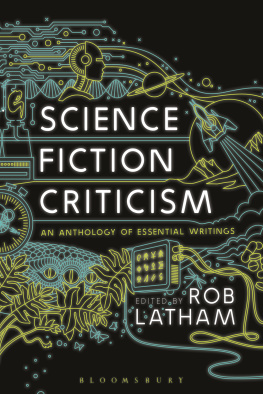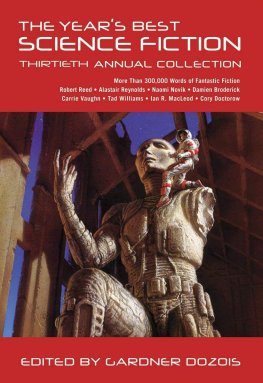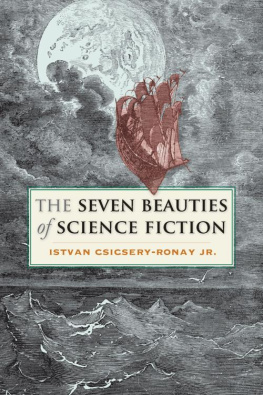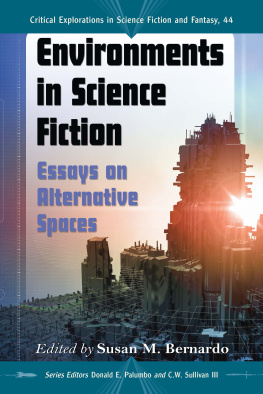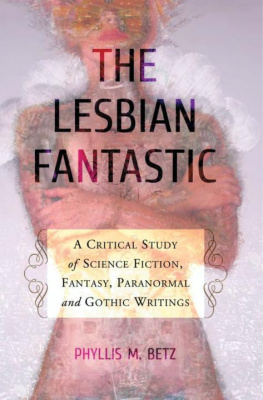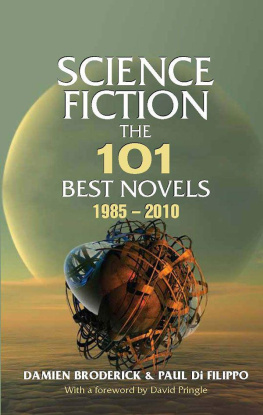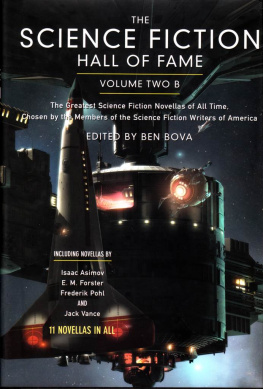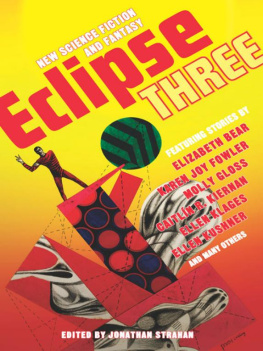Science Fiction
Criticism
Also available from Bloomsbury
Apocalyptic Fiction , Andrew Tate
Science Fiction: A Guide for the Perplexed , Sherryl Vint
Science Fiction
Criticism
An Anthology of
Essential Writings
Edited by Rob Latham
Bloomsbury Academic
An imprint of Bloomsbury Publishing Plc

Contents
Chapter 2: By permission of United Agents LLP.
Chapter 3: By permission of Spectrum Literary Agency.
Chapter 4: By permission of the Estate of Judith Merril and the Virgina Kidd Literary Agency.
Chapters 5, 10, 26, 27, 31, and 35: By permission of the authors.
Chapter 6: By permission of the author and Mosaic: A Journal for the Interdisciplinary Study of Literature .
Chapters 7, 8, 12, 18, 19, 20, 28, 30, and 36: By permission of the authors and Science Fiction Studies .
Chapter 9: By permission of J.G. Ballards Estate and the Wylie Agency Ltd.
Chapter 11: By permission of the author and College English .
Chapter 13: By permission of the author and The New York Review of Science Fiction .
Chapter 14: By permission of the author and Fordham University Press.
Chapter 16: By permission of Farrar, Straus and Giroux.
Chapter 17: By permission of the Diana Finch Literary Agency.
Chapters 21 and 32: By permission of the authors and Extrapolation .
Chapter 23: By permission of Penguin Random House LLC and The Philip K. Dick Testamentary Trust/Wylie Agency Ltd.
Chapter 24: By permission of the author and University of Minnesota Press.
Chapter 25: By permission of the author and October /MIT Press.
Chapter 29: By permission of the author and Liverpool University Press.
Chapter 33: By permission of the author and The Yearbook of English Studies .
Chapter 34: By permission of the author and MELUS: Multi-Ethnic Literature of the United States .
This anthology brings together a representative selection of the most important critical essays and approaches to SF studies since the inception of the genre in the nineteenth century, combining in one volume essential works in the history of SF criticism, as well as key theoretical statements that have become touchstones in the field. Reflecting the historical development of the discourse, it contains a strong balance of amateur and professional work, with fourteen pieces produced by SF authors, editors, and fans and twenty-one by academic scholars. The trajectory of coverage is designed to reflect the growth of SF studies as a discipline, moving from the formalist perspectives that dominated early criticismand that construe SF primarily as a literary genreto work that reflects contemporary understandings of SF as a mode of analysis, a way of thinking about alterity and difference that has become a useful critical tool for feminist, antiracist, and other political work. The volume canvasses the most important critical methodologies in the history of SF studies, from structuralism to feminism and Marxism to queer theory and critical race studies.
Collecting some of the most indispensable works of SF criticism and theory (including four winners of the Science Fiction Research Associations Pioneer Award for best critical article of the year), this volume is designed to introduce readers to the key developments and statements in SF criticism. The study of SF is now at the center of much contemporary humanities scholarship, as theoretical paradigms such as cyberculture and posthumanism have raised the critical significance of SFs depictions of nonhuman otherness. At the same time, the importance of SF to cultural engagements with science and technology has been widely recognized by scholars. This volume, thus, not only provides guidance to the most influential methods deployed in the critical study of SF, from formalist/thematic criticism concerned with definitions and narrative dynamics to political and cultural criticism engaged with issues of gender, race, sexuality, and imperialism, it also surveys the various ways the genre has been configured in relation to discourses of science, politics, and popular culture.
The book is divided into five sections: Definitions and Boundaries, Structure and Form, Ideology and Worldview, The Non-Human, and Race and the Legacy of Colonialism. Selections in each section, which are organized chronologically, are chosen not only to outline the central critical trends in the study of SF but also to show dialogue and exchange as core concepts have been refined over time. The first section explores key attempts to delimit the boundaries of SF as a field. While Hugo Gernsbacks editorial for the first issue of the first SF pulp, Amazing Stories , sought to articulate a cohesive corpus, much of the work in this section is concerned with expanding parameters, with Robert A. Heinlein and Judith Merril seeing SF as part of a larger tradition of speculative fiction, while Veronica Hollinger connects recent trends in the genre with postmodern literature and theory. Finally, Roger Luckhurst and John Rieder suggest ways in which the very impulse to define and delimit SF is historically overdetermined and theoretically suspect.
Section II examines key interventions in the study of SF as a narrative form. It opens with J. G. Ballards polemical call for a surrealist mode of SF writing counterpoised to the pulp tradition and then moves into classic structuralist analyses of SFs textual dynamics by Samuel R. Delany, Darko Suvin, and Marc Angenot. Damien Broderick contributes the key term megatext to show how individual works of SF are implicated in a larger body of shared ideas, images, and tropes. Finally, David Wittenberg examines time-travel stories as paradigms for narratological operations relating to temporality and subjectivity.
Section III opens a consideration of SFs sociopolitical implications, a theme that, in various ways, continues through the remaining sections. It begins with a famous early fan statement of SFs progressive possibilities by John B. Michel, who defends the vision of the genre as a powerful mode of social criticism. This notion will later be given more rigorous theoretical formulation by academic Marxist critics such as Fredric Jameson and Carl Freedman. On the other hand, Susan Sontag and Joanna Russ point to ways in which the genre is entangled, regressively, with social ideologies. Wendy Pearsons consideration of SFs queer subtexts is more ambivalent, exploring a dialectic of repression and revelation that structures SFs treatments of nonnormative sexuality, while Lisa Yaszek shows how the genre has always welcomed perspectives that arraign prevailing gender norms and values.
Section IV focuses closely on one of the major topics in SF: the representation of nonhuman others (aliens, robots, cyborgs, etc.), considering the formal and ideological implications of these depictions. The section opens with Mary Shelleys musings on the origins of SFs first and most famous humanoid creation, Frankensteins monster . Both Philip K. Dicks and Gwyneth Joness essays examine, from very different perspectives, the ways in which artificial or extraterrestrial beings reflectand reflect uponissues of human identity and community, while N. Katherine Hayles and Vernor Vinge consider the emergence of posthuman life forms linked to cybernetic and information technologies. Donna Haraway and Allison de Fren explore how depictions of cyborgs in SF are deeply enmeshed in the politics of gender and sexuality, while Sherryl Vint exposes how SFs many forms of alienness serve as displaced representations of animal otherness.

